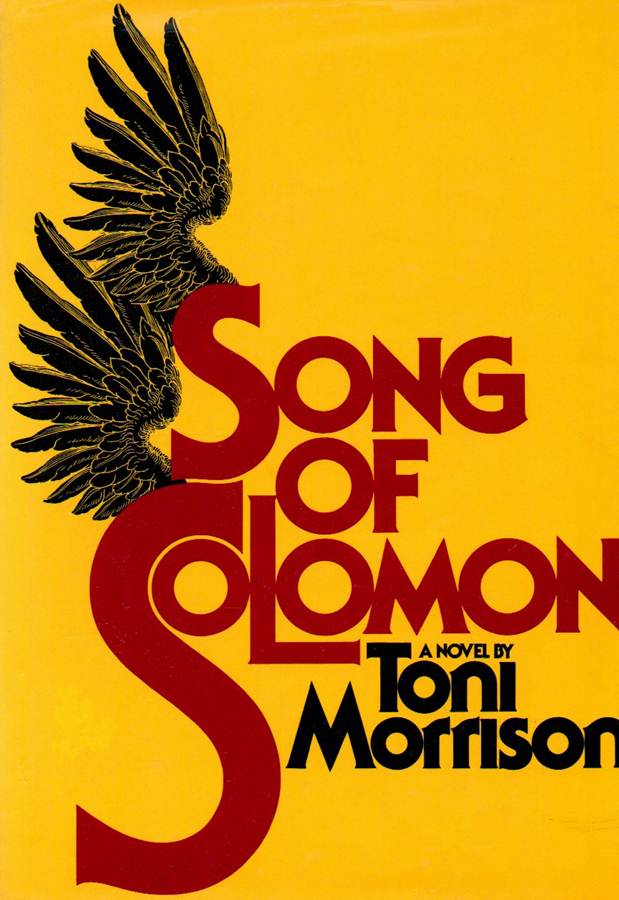What is your favorite National Book Critics Circle finalist of all time? The first NBCC winners, honored in 1975 for books published in 1974, were E.L. Doctorow (Ragtime, fiction), John Ashbery (Self-Portrait in a Convex Mirror, poetry), R.W.B. Lewis for his biography of Edith Wharton, and Paul Fussell (The Great War and Modern Memory, criticism). In 2014 the National Book Critics Circle prepares to celebrate nearly forty years of the best work selected by the critics themselves, and also to launch the new John Leonard award for first book. So we're looking back at the winners and finalists, all archived on our website, and we've asked our members and former honorees to pick a favorite. Here's the twenty-seventh in our latest in six years of NBCC Reads surveys.

I don't feel I could ever have a “favorite” book and much less could I feel a need to name a “best” or anything close to “the best” novel, as these terms feel to me so contrary to the whole nature of writing and art in general. I want to still hold out a hope that literature will and can transcend our very limiting list-making culture, a culture in which winner takes all perhaps too often. In recent years it feels this has gotten out of hand, burying and obscuring so much deserving brilliance, contribution, and talent.
But, oddly, to answer this question happily brings me to a more innocent time in my writing life when astonishment was at play, and discovering a new voice and vision felt like taking a shot of heaven into the veins.
The writer I remember most from this time, besides the Latin American writer Gabriel Marquez, who similarly wrote with a mythic sweep, was Toni Morrison. Before Morrison, William Faulkner had occupied that particular place in my literary engine room. American literature resonated not merely as story and plot, and a recognizable cast of familiar characters there–the fuel and fire was wrought from subconscious, primal resources. And literature could act as the carrier of a kind of biblically proportioned largeness, providing a sanctuary where the outsiders in our culture could find identity and meanings, a birthright in an otherwise very closed society.
In Song of Solomon, Morrison's central character is named Macon “Milkman” Dead III. Milkman's great-grandfather was the legendary flying African, Solomon, who was reputed to have escaped slavery by flying back to Africa. Although Solomon's flight was miraculous, it had wounded his family lineage in America, leaving scars that lasted for generations to come.
Milkman's two sisters are named, respectively, “First Corinthians” and “Magdelene called Lena.” Macon Dead Jr.'s sister is named Pilate. Born without a navel, Pilate is a mystical character. It is strongly implied that she is “Divine.” The names were given originally as a result of certain administrative mistakes at the end of the era of slavery. There is plenty of “plot” of course but essentially we are immersed in deeper resonances and imagery, in a poetic sweeping epic, a symphonic shivering prose that takes us through the efforts of a “Seven Days” Afro-American group to fund their revenge killings in response to the multiple killings of blacks that had taken place for the decades before Emancipation and the Civil War.
This wasn't Harriet Beecher Stowe writing but a black authentic woman writer, Toni Morrison, and Morrison broke through the sound barrier itself to tell a raw tale like no other writer I had ever read since Faulkner.
At the end of the novel, after his best friend accidentally shoots Pilate in an attempt to take Milkman's life, Milkman leaps from “Solomon's Leap,” the mountain his legendary great-grandfather was said to leap from to fly back to Africa, thus escaping slavery. This result of Milkman's leap is ambiguous; it is not explicitly told that Milkman dies or survives the fall. But as the novel begins with very literal suicide of a white man, Robert Smith, an insurance agent who clearly jumps to his very real gory death, in contrast Milkman's “flight”, Morrison tells us, is a very different kind of trajectory. It is a mythic flight in which he has finally learned meaning, identity, and spirit or as Morrison writes: “For now he knew what Shalimar knew: If you surrendered to the air, you could ride it.”
For me, the future of the novel flew, too as Morrison penned his “Song,” escaping the restraints and limits of provincialism and stereotypes, the tired swan song of victimhood.

